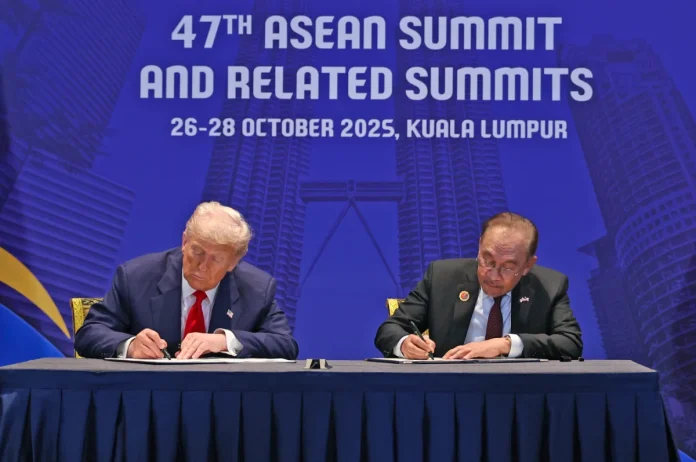PETALING JAYA: The US–Malaysia trade pact may have been hailed as a diplomatic breakthrough, but it could prove a costly victory for Malaysia, says an economist.
Prof Geoffrey Williams cautioned that the benefits may be limited and could come with a sting in the tail.
He said tariff exemptions cover only RM21.9 billion worth of Malaysian exports to the US, or just 11% of total trade value in 2024.
“That means 89% of exports by value are now hit with a 19% reciprocal tariff.”
“Before ‘Liberation Day’ – when President Trump unveiled his tariff package most Malaysian exports were tariff-free. Now, almost 90% by value face tariffs. So this is a big, bad impact.”
On whether the pact could attract investment, Williams said Malaysia has limited leverage to draw new US foreign direct investment.
“US investments generally come from businesses, not governments. Some US rare-earth firms may see opportunities, but otherwise, nothing much has improved in trade or investment prospects.”
He warned that Malaysia’s commitments under the agreement – including purchases of US aircraft, LNG and semiconductors could reduce flexibility.
“The purchases align with existing plans, but there’s no room to manoeuvre. For instance, if there’s a backlog in US aircraft deliveries, Malaysia must simply wait in line.”
Williams said Asean economies could see some indirect gains.
“The benefit for Asean and Malaysia is that they’ve been forced to cut tariffs and tackle non-tariff barriers to US trade. In other words, protectionist policies have been challenged, paving the way for freer trade in the future.”
Responding to International Trade and Industry Minister Tengku Datuk Seri Zafrul Abdul Aziz’s claim that the deal “respects both countries’ national sovereignty”, Williams offered a guarded reading.
“It seems to mean the US respects Malaysia’s right to impose trade restrictions in certain areas without specifying which. In return, the US imposed a 19% reciprocal tariff. So Malaysia is effectively paying for its sovereignty and policy autonomy.”
He noted that the deal also commits Malaysia to rein in government-linked companies that distort markets, curb censorship of US TV news, address trafficking and child labour, and limit purchases of nuclear-energy equipment from certain countries.
“There are lots of touch points Malaysia will struggle with.”
Asked if Malaysia gained any clear wins, Williams was blunt.
“None from facing a 19% tariff when previous tariffs were much lower.
“The only indirect gain is being pushed to reform – like a doctor forcing you on a diet. You may not like it, but it could make you healthier in the long term.”








